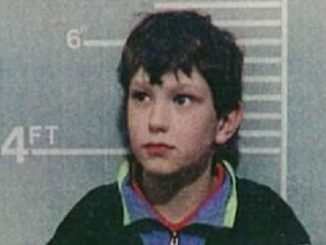
The former Detroit drug dealer dubbed “White Boy Rick” has waited nearly 30 years to hear these words: he will be paroled from prison.
The 10-member Michigan Parole Board voted unanimously to release Richard Wershe Jr. during a closed-door meeting today, but the 47-year-old prisoner may not gain his freedom for years, officials said.
“We’re overjoyed,” his sister Dawn Wershe said of her family’s reaction to the decision. “And it’s long overdue is the way we feel.”
Richard Wershe, who has been serving life with the possibility of parole for possession with intent to deliver more than 650 grams of cocaine, will remain in the custody of the Michigan Department of Corrections until at least mid-August, officials said. Then he has time to serve in Florida for a separate case there involving a stolen-car scheme.
“At least he’ll have a light at the end of the tunnel,” Wershe’s longtime attorney Ralph Musilli told the Free Press today. “He’ll know exactly how long he has to serve and that will be the end of it.”
Florida officials will be responsible for making arrangements for his transfer.
During a public parole hearing in his drug case last month, Wershe said he is a changed man and promised never to commit another crime.
Detroit police arrested Wershe in 1987 for the drug crime. Officials said the then 17-year-old stashed 8 kilos of cocaine and nearly $30,000.
“I know that the drugs I sold destroyed people’s lives,” Wershe said last month. “I can’t take it back.”
The hearing last month spanned more than four hours and Wershe answered many questions about his life, including telling the panel he started working as a law enforcement informant when he was 14.
It started small with Wershe giving FBI agents the identities of people in pictures and grew from there, he said. At first, Wershe said, he thought it was cool that he worked for law enforcement, including the Detroit police, and got paid the first time he made a drug buy for them.
Wershe, a father of three and grandfather of six, also talked about selling drugs as a teenager on his own and his role in the stolen car-scheme while in prison in Florida, calling it a “big mistake.”
He said he was trying to help his sister, who was raising his daughter, make money buying then selling cars. Wershe admitted that he become aware some of the cars were stolen and said his sister made $6,000 total off three or four cars.
A plea agreement in the case said prosecutors agreed not to file charges against Wershe’s sister or mother in connection with the case.
Wershe was put in the federal witness protection program in a Florida prison after he cooperated with FBI agents to bust corrupt police officers while in prison for the drug crime in Michigan.
Retired FBI agent Herman Groman worked with Wershe on that operation, has fought for the inmate’s freedom and said he is “elated” about today’s decision.
“It took a long time coming, but I think justice has been served,” he said.
Wershe’s controversial case has garnered national attention over the years and included years of legal wrangling.
He was originally sentenced to life in prison without parole, which was changed to life with the possibility of parole because of changes in the drug law.
In 2015, Wayne County Circuit Judge Dana Hathaway said Wershe was “entitled to be resentenced” for his 1988 conviction “with consideration given to his youth and the circumstances surrounding the crime.” The decision was reversed by the Michigan Court of Appeals after the Wayne County Prosecutor’s Office appealed and argued that Hathaway’s ruling was “without authority.”
Last year, Wayne County Prosecutor Kym Worthy said she reviewed her office’s position on Wershe’s case amid an examination of juvenile life-without-parole murder cases, and she left the parole decision up to the parole board.
Worthy issued a statement today regarding the parole board’s decision.
“The position of the Wayne County Prosecutor’s Office is that this is a decision that has been made by the parole board and that we have no further position,” Worthy said in the statement. “We respect and accept the decision of the parole board.”
Nobody opposed Wershe’s parole last month, but that was not the case in 2003 during his only other public hearing. Drug Enforcement Administration agents, police and prosecutors argued against his release at that time while FBI agents and Kid Rock, who knew Wershe growing up, argued for his freedom.
Wershe’s case has inspired movies, including one in the works starring Matthew McConaughey as Wershe’s father, and the documentary, “White Boy,” which was featured in this year’s Freep Film Festival.
Source: Detroit Free Press






Be the first to comment